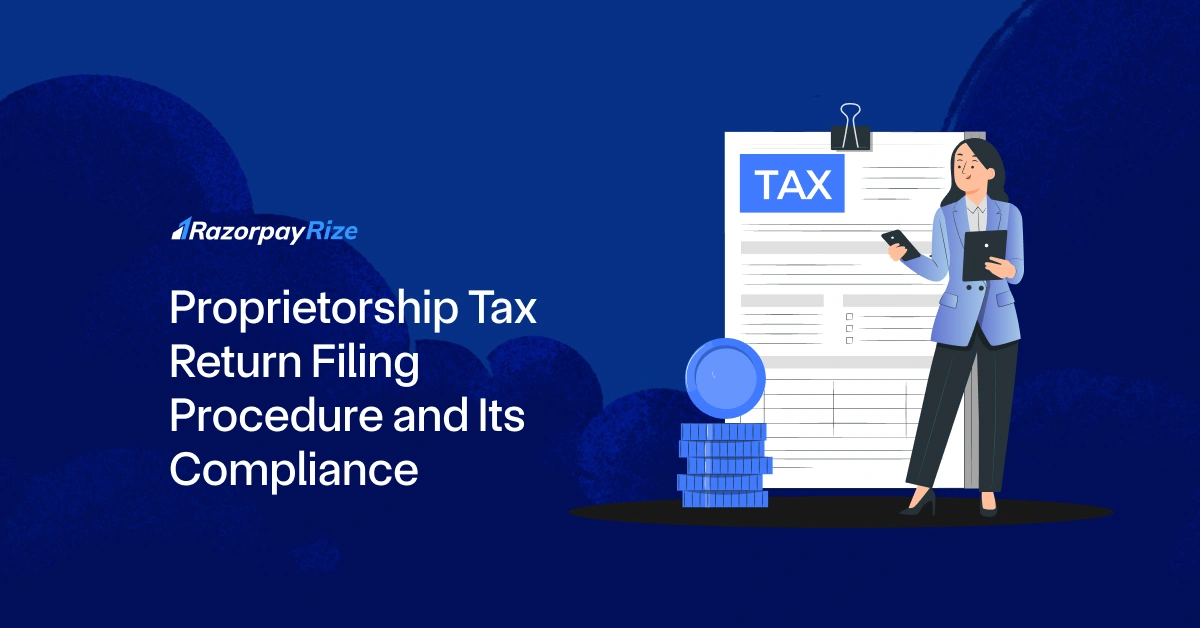A director in a private limited company plays a crucial role in steering the business towards success while ensuring it operates within legal and ethical boundaries. They’re not just figureheads—they are the driving force behind the company’s growth and stability. In India, the role of private limited company directors is both powerful and essential.
Beyond just compliance, directors also inspire and lead the team. They set the tone for the company's culture and vision, fostering an environment where employees feel motivated and valued. Their decisions can drive innovation, enhance productivity and ultimately lead to the company's success.
Table of Contents
Meaning of Director in Private Limited Company
In a private limited company, a director is an individual appointed to the board of directors, responsible for managing the company's affairs. Directors act on behalf of the company, making high-level decisions to steer the company toward its goals. For example, appointing key executives, such as a CEO or CFO or approving budgets to support growth initiatives.
Be it any type of company, their role includes overseeing corporate strategies, managing financial risks and ensuring compliance with relevant laws.
Directors are entrusted with fiduciary duties and expected to act in the company's best interest, as well as that of shareholders and stakeholders. They are key decision-makers and hold significant power in shaping the company's direction, whether in operations, business expansions or financial management.
In short, directors form the backbone of a company’s governance structure and are accountable for its overall performance.
Becoming Director in a Private Limited Company
To become a director in a private limited company, follow these steps:
Step 1. Obtain a Director Identification Number (DIN):
- Apply for a unique DIN via the Ministry of Corporate Affairs (MCA) portal.
- This is a mandatory requirement for anyone seeking an appointment as a director.
Step 2. Prepare Necessary Documents:
- Gather proof of identity (such as a PAN card) and address (such as an Aadhaar card or utility bill).
- Ensure all documents are valid and up-to-date for smooth processing.
Step 3. Submit Documents During Incorporation:
- Provide the required documents as part of the company incorporation or appointment process.
Step 4. Appointment by Shareholders:
- The company's shareholders formally appoint the director during a board meeting.
- Ensure the appointment is in compliance with the company's Articles of Association.
Step 5. Register Appointment with Registrar of Companies (RoC):
- The appointment must be officially registered with the RoC to complete the process.
Step 6. Understand Director Responsibilities:
- Recognise that being a director comes with significant legal, financial, and operational responsibilities.
Private Limited Company Directors Responsibilities
A director in pvt ltd company fulfils various duties and responsibilities that ensure the company’s smooth operation and compliance with laws. Here are some company director duties:
- Act within Powers
Directors must act within the authority of the company's Memorandum and Articles of Association, ensuring all actions are legal and authorised.
Example: A director of a manufacturing firm must seek board approval before signing a contract for a new supplier, as stipulated in the company’s Articles of Association.
- To Promote the Welfare of the Company
Directors must always prioritise the company’s success, avoiding decisions that might harm its operations or financial standing.
Example: A director of a retail chain may opt to delay expansion plans during an economic downturn to ensure the company’s financial stability.
- Exercise Personal Discretion
Directors are expected to use their judgment and discretion in decision-making, ensuring they make independent choices that align with the company’s interests.
Example: A director in a tech startup may choose to invest in a high-potential but risky innovation project after independently analysing market trends, even if other board members are hesitant.
- Avoid Conflict of Interest
Directors must avoid situations where their personal interests conflict with the interests of the company, such as taking part in business transactions that may benefit them personally.
Example: A director owning shares in a vendor company must disclose this relationship and recuse themselves from decisions involving contracts with that vendor.
- Make Independent Decisions
As a director, it’s crucial to maintain the ability to make independent decisions that are in the best interest of the company’s growth and long-term success.
Example: A director may support a merger proposal after conducting an unbiased evaluation of the deal’s benefits, even if opposed by some stakeholders.
- Crisis Management
During challenging times, directors must manage crises effectively, keeping the company’s long-term goals in mind and navigating risks judiciously.
Example: A director in a logistics company might quickly implement contingency plans during a supply chain disruption, ensuring customer commitments are met while minimizing losses.
The role of a director in a company is a balance of leadership, responsibility and ethics. Every decision you make impacts the company, and you must ensure that the company thrives and adheres to the law.
Types of Directors in Company Law
Private limited companies can have different types of company directors, each with specific roles and responsibilities. Major types of directors in a private limited company include:
- Managing Director(MD)
The Managing Director (MD) is the highest ranking director responsible for overseeing the company’s daily operations and ensuring its goals and strategies are successfully carried out.
As the MD, this director holds significant decision-making authority and is responsible for setting organisational policies, managing resources and leading the team. They work closely with the board to align the company’s strategic initiatives with long-term objectives.
The MD bridges the board and the company's operational team, driving performance and growth.
- Whole-Time Director
A Whole-Time Director is a full-time employee dedicated to specific operational responsibilities within the organisation. Unlike non-executive directors, they are involved in the company's daily operations, overseeing areas such as finance, HR or marketing.
Their role is to ensure smooth operational performance and to support the MD and board by managing specific functions and executing company policies. Whole-Time Directors are vital in implementing the board’s strategic decisions on a day-to-day basis.
- Ordinary Director
An Ordinary Director is a member of a company’s board of directors, serving in a non-executive capacity. Their primary role is to attend board meetings, contribute to discussions, and participate in decision-making processes that shape the company's strategy and policies.
Unlike executive directors or managing directors, Ordinary Directors are not involved in the day-to-day management or operations of the business.
- Nominee Director
A Nominee Director is appointed to represent the interests of a particular stakeholder, often an investor or a lending institution. They serve on the board to ensure that the appointing party’s interests and concerns are considered in key company decisions.
Nominee Directors may be particularly common in joint ventures or companies with external funding. Their responsibility is to maintain a balanced perspective in the boardroom, ensuring the investor or stakeholder’s views are addressed without compromising the company's broader interests.
- Alternate Director
An Alternate Director is appointed temporarily to act in place of an absent director, usually one who is based abroad or unavailable for a period. The Alternate Director has the same powers and responsibilities as the original director and participates in board meetings and decision-making.
This role ensures continuity in governance, allowing the company to maintain full functionality even when a permanent director is unavailable.
- Professional Director
A Professional Director is an individual appointed to a company’s board based on their expertise, skills, and experience rather than their relationship with the company’s founders or shareholders.
Typically, these directors bring specialised knowledge in areas such as finance, law, operations, marketing, or industry-specific expertise that adds value to the board’s decision-making process.
All the types of directors in a company bring specific expertise and focus, helping ensure a well-rounded leadership team.
Number of Directors in Private Limited Company
The number of directors in private limited company depends on the scale and needs of the business. The minimum directors in the private limited company can be 2. However, the maximum number of directors in a private company is 15. A smaller company may only need two or three directors.
It is important to balance the number of directors, as having too few can limit the diversity of opinions and skills, while too many can create inefficiencies in decision-making.
When determining the optimal number of directors for a company, consider the following factors:
- Company Size and Complexity
Larger or more complex companies benefit from more directors handling diverse functions and providing specialised knowledge in finance, operations and marketing.
- Industry Requirements
Certain industries, especially those highly regulated (e.g., finance, healthcare), may require directors with specific expertise or certifications, potentially increasing the ideal board size.
- Diversity of Skills and Perspectives
A well-rounded board should include directors with diverse skills, professional backgrounds and viewpoints, enhancing decision-making and innovation.
- Corporate Governance Standards
For better governance and accountability, adding more independent or non-executive directors can help provide objective oversight and mitigate conflicts of interest.
- Decision-Making Efficiency
Smaller boards may lead to quicker decision-making, while larger boards can become cumbersome; balance is key for smooth and effective operations.
- Legal and Compliance Requirements
Local law often sets minimum and maximum limits on the number of directors, so companies must adhere to these regulatory standards.
- Cost Implications
Increasing the number of directors adds to costs (e.g., compensation, meeting expenses), so financial resources must be considered when expanding the board.
- Growth Stage
Early-stage companies may need fewer directors, focusing on core founders, while scaling companies benefit from additional directors with strategic and operational experience.
So, the ideal number of directors depends on the company’s size, the industry and the areas of expertise required.
Company Director Residency Requirement
In India, one of the key legal director requirements for establishing a private limited company is that at least one director must be a resident of India. Under the Companies Act, a resident director is defined as someone who has spent at least 182 days in India during the preceding calendar year.
This company director residency requirement serves multiple purposes:
- To ensure local governance and effective leadership
- As a safeguard against companies that may be established with little or no physical presence in the country, helping the government ensure that companies are genuinely rooted in the local economy.
- To enhance accountability and align the company’s operations with India’s regulatory framework, benefiting both the company and its stakeholders.
Conclusion
Directors in private limited companies play a critical role in steering the organisation toward growth and ensuring legal compliance. With increasing complexities in business operations, the responsibilities of directors are more significant than ever.
As businesses grow and face new challenges, the role of directors will evolve, but one thing will remain constant: the need for both responsible and visionary leadership. Directors must continue to adapt, making informed decisions to lead their companies into the future.
FAQs on Directors in a Private Limited Company
Private Limited Company
(Pvt. Ltd.)
- Service-based businesses
- Businesses looking to issue shares
- Businesses seeking investment through equity-based funding
Limited Liability Partnership
(LLP)
- Professional services
- Firms seeking any capital contribution from Partners
- Firms sharing resources with limited liability
One Person Company
(OPC)
- Freelancers, Small-scale businesses
- Businesses looking for minimal compliance
- Businesses looking for single-ownership
Private Limited Company
(Pvt. Ltd.)
- Service-based businesses
- Businesses looking to issue shares
- Businesses seeking investment through equity-based funding
One Person Company
(OPC)
- Freelancers, Small-scale businesses
- Businesses looking for minimal compliance
- Businesses looking for single-ownership
Private Limited Company
(Pvt. Ltd.)
- Service-based businesses
- Businesses looking to issue shares
- Businesses seeking investment through equity-based funding
Limited Liability Partnership
(LLP)
- Professional services
- Firms seeking any capital contribution from Partners
- Firms sharing resources with limited liability
Frequently Asked Questions
Can a person be a director in more than one company?
In India, under the Companies Act of 2013, a person can serve as a director in a maximum of 20 companies at once. However, there are limits within this cap—only 10 of these can be public companies. This rule aims to ensure that directors can effectively fulfil their responsibilities without being stretched too thin across multiple organisations.
Can a director be appointed without a DIN (Director Identification Number)?
No, a director in India cannot be appointed without a DIN. A DIN is mandatory under the Companies Act of 2013, as it uniquely identifies each director and is required for their appointment in any company. The DIN application is submitted to the Ministry of Corporate Affairs, and once obtained, it is used for all directorships and filings.
How does a director influence a company's culture?
A director plays a significant role in shaping a company’s culture by setting ethical standards, defining organisational values and leading by example. Directors influence company culture through the policies they approve, the leadership tone they set and their interactions with executives and employees.
By encouraging open communication, promoting transparency and supporting employee development, directors can positively impact morale and align the company’s culture with its strategic goals.
Are company directors involved in day-to-day operations?
Generally, directors are not involved in a company's day-to-day operations; their role is more strategic and supervisory. They focus on high-level governance, setting long-term goals and ensuring that the company's management team is performing well.
However, in smaller companies or startups, directors might take a more hands-on approach, becoming more involved in daily tasks and decisions due to limited resources or a smaller team.









%20Explained%20(1).webp)







